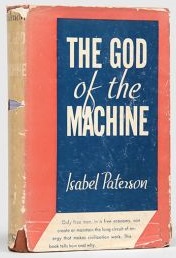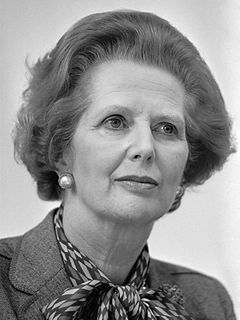 W
WBroadly speaking, liberty is the ability to do as one pleases, or a right or immunity enjoyed by prescription or by grant. It is a synonym for the word freedom. In modern politics, liberty is the state of being free within society from control or oppressive restrictions imposed by authority on one's way of life, behaviour, or political views. In philosophy, liberty involves free will as contrasted with determinism. In theology, liberty is freedom from the effects of "sin, spiritual servitude, [or] worldly ties". Sometimes liberty is differentiated from freedom by using the word "freedom" primarily, if not exclusively, to mean the ability to do as one wills and what one has the power to do; and using the word "liberty" to mean the absence of arbitrary restraints, taking into account the rights of all involved. In this sense, the exercise of liberty is subject to capability and limited by the rights of others. Thus liberty entails the responsible use of freedom under the rule of law without depriving anyone else of their freedom. Freedom is more broad in that it represents a total lack of restraint or the unrestrained ability to fulfill one's desires. For example, a person can have the freedom to murder, but not have the liberty to murder, as the latter example deprives others of their right not to be harmed. Liberty can be taken away as a form of punishment. In many countries, people can be deprived of their liberty if they are convicted of criminal acts.
 W
WThe Austrian School is a heterodox school of economic thought that is based on methodological individualism—the concept that social phenomena result exclusively from the motivations and actions of individuals.
 W
WCharlie Dunbar Broad, FBA, usually cited as C. D. Broad, was an English epistemologist, historian of philosophy, philosopher of science, moral philosopher, and writer on the philosophical aspects of psychical research. He was known for his thorough and dispassionate examinations of arguments in such works as Scientific Thought (1923), The Mind and Its Place in Nature (1925), and Examination of McTaggart's Philosophy.
 W
WA consensual crime is a public-order crime that involves more than one participant, all of whom give their consent as willing participants in an activity that is unlawful. Legislative bodies and interest groups sometimes rationalize the criminalization of consensual activity because they feel it offends cultural norms, or because one of the parties to the activity is considered a "victim" despite their informed consent.
 W
WThere are wide varieties of economic inequality, most notably measured using the distribution of income and the distribution of wealth. Besides economic inequality between countries or states, there are important types of economic inequality between different groups of people.
 W
WFree banking is a monetary arrangement where banks are free to issue their own paper currency (banknotes) while also subject to no special regulations beyond those applicable to most enterprises.
 W
WFree migration or open immigration is the position that people should be able to migrate to whatever country they choose.
 W
WThe God of the Machine is a book written by Isabel Paterson and originally published in January 1943 in the United States by G. P. Putnam's Sons. At the time of its release, it was considered a cornerstone to the philosophy of individualism. Her biographer, Stephen D. Cox, in 2004 described Paterson as the "earliest progenitor of libertarianism as we know it today".
 W
WThe homestead principle is the principle by which one gains ownership of an unowned natural resource by performing an act of original appropriation. Appropriation could be enacted by putting an unowned resource to active use, joining it with previously acquired property or by marking it as owned.
 W
WIndividualism is the moral stance, political philosophy, ideology and social outlook that emphasizes the moral worth of the individual. Individualists promote the exercise of one's goals and desires and to value independence and self-reliance and advocate that interests of the individual should achieve precedence over the state or a social group while opposing external interference upon one's own interests by society or institutions such as the government. Individualism is often defined in contrast to totalitarianism, collectivism and more corporate social forms.
 W
WNegative liberty is freedom from interference by other people. Negative liberty is primarily concerned with freedom from external restraint and contrasts with positive liberty. The distinction was introduced by Isaiah Berlin in his 1958 lecture "Two Concepts of Liberty".
 W
WA night-watchman state or minarchy is a model of a state that is limited and minimal, whose only functions are to act as an enforcer of the non-aggression principle by providing citizens with the military, the police and courts, thereby protecting them from aggression, theft, breach of contract, fraud and enforcing property laws. Its proponents are called minarchists.
 W
WThe Nolan Chart is a political spectrum diagram created by American libertarian activist David Nolan in 1969, charting political views along two axes, representing economic freedom and personal freedom. It expands political view analysis beyond the traditional one-dimensional left–right/progressive-conservative divide, positioning libertarianism outside the traditional spectrum.
 W
WObjectivism is a philosophical system developed by Russian-American writer Ayn Rand. Rand first expressed Objectivism in her fiction, most notably The Fountainhead (1943) and Atlas Shrugged (1957), and later in non-fiction essays and books. Leonard Peikoff, a professional philosopher and Rand's designated intellectual heir, later gave it a more formal structure. Rand described Objectivism as "the concept of man as a heroic being, with his own happiness as the moral purpose of his life, with productive achievement as his noblest activity, and reason as his only absolute". Peikoff characterizes Objectivism as a "closed system" insofar as its "fundamental principles" were set out by Rand and are not subject to change. However, he stated that "new implications, applications and integrations can always be discovered".
 W
WThe parable of the broken window was introduced by French economist Frédéric Bastiat in his 1850 essay "Ce qu'on voit et ce qu'on ne voit pas" to illustrate why destruction, and the money spent to recover from destruction, is not actually a net benefit to society.
 W
WThe public sector is the part of the economy composed of both public services and public enterprises.
 W
WEdwin Clarence Riegel, generally known as E.C. Riegel, was an American author, consumer advocate and independent scholar who campaigned against restrictions on free markets that harmed consumers and promoted an alternative monetary theory and an early private enterprise currency alternative.
 W
WTax resistance is the refusal to pay tax because of opposition to the government that is imposing the tax, or to government policy, or as opposition to taxation in itself. Tax resistance is a form of direct action and, if in violation of the tax regulations, also a form of civil disobedience.
 W
WThatcherism is a form of British conservative ideology named after Conservative Party leader Margaret Thatcher. The term has been used to describe the principles of the British government under Thatcher from the 1979 general election to her resignation in 1990, and continuing into the Conservative governments under John Major and David Cameron. Proponents of Thatcherism are referred to as Thatcherites.
 W
WThe title-transfer theory of contract (TTToC) is a legal interpretation of contracts developed by economist Murray Rothbard and jurist Williamson Evers. The theory interprets all contractual obligations in terms of property rights, viewing a contract as a bundle of title transfers. According to Randy Barnett, The TTToC stands in oppositions to most mainstream contract theories which view contractual obligations as the result of a binding promise. Proponents of the approach often claim it is superior on grounds of both consistency and ethical considerations. The TTToC is often supported by libertarians.
 W
WA victimless crime is an illegal act that typically either directly involves only the perpetrator or occurs between consenting adults. Because it is consensual in nature, whether there involves a victim is a matter of debate. Definitions of victimless crimes vary in different parts of the world and different law systems, but usually include possession of any illegal contraband, recreational drug use, prostitution and prohibited sexual behavior between consenting adults, assisted suicide, and smuggling among other similar infractions.